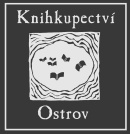Jiri Hauschka
Jiří Hauschka (narozen 1965 v Šumperku) se obrací k tomu typu malířství, pro které jsou důležité barvy a symbolické konotace, tak jak tomu bylo na přelomu 19. a 20. století – v tomto období se Jiří Hauschka vztahuje zejména ke kanadskému malíři Tomovi Thomsonovi, který žil v letech 1877 až 1917 – či jak se děje v ateliérech soudobých autorů, jako jsou kupříkladu Daniel Richter nebo Peter Doig. Realita se proměňuje v malířské naraci na vrstevnaté vyprávění, kde se mísí umělecká paměť s novými zážitky, pohledy, touhami, citovými zjitřeními. V případě Jiřího Hauschky se ocitáme v divočině, v divočině malířské nostalgie, kde hledáme člověka, a v urbánní civilizaci, v té civilizaci, která je na pokraji svých možností a kde tak cítíme a vidíme barvy divočiny.
Autory textů jsou Martin Dostál a slovutný britský kunsthistorik Edward Lucie-Smith.
Jiří Hauschka (born 1965 in Šumperk) turns to this type of painting method that utilizes colours and symbolic connotations, prevalent at the turn of the 20th century – he positions himself in that period next to the Canadian painter Tom Thomson (1877–1917) – and used by contemporary painters such as Daniel Richter or Peter Doig. Reality is transformed by the painter‘s narration into layered storytelling, where the artist’s memory is interspersed with new experiences, views, desires and emotional turbulences. In the case of Jiri Hauschka, we find ourselves in the wilderness of painter nostalgia, where we look for the conceptual person, and in urban civilization, which has barely any options left and where we can therefore feel and see the colours of wilderness.
The authors of the texts are Martin Dostál and the famous British art historian Edward Lucie-Smith.










